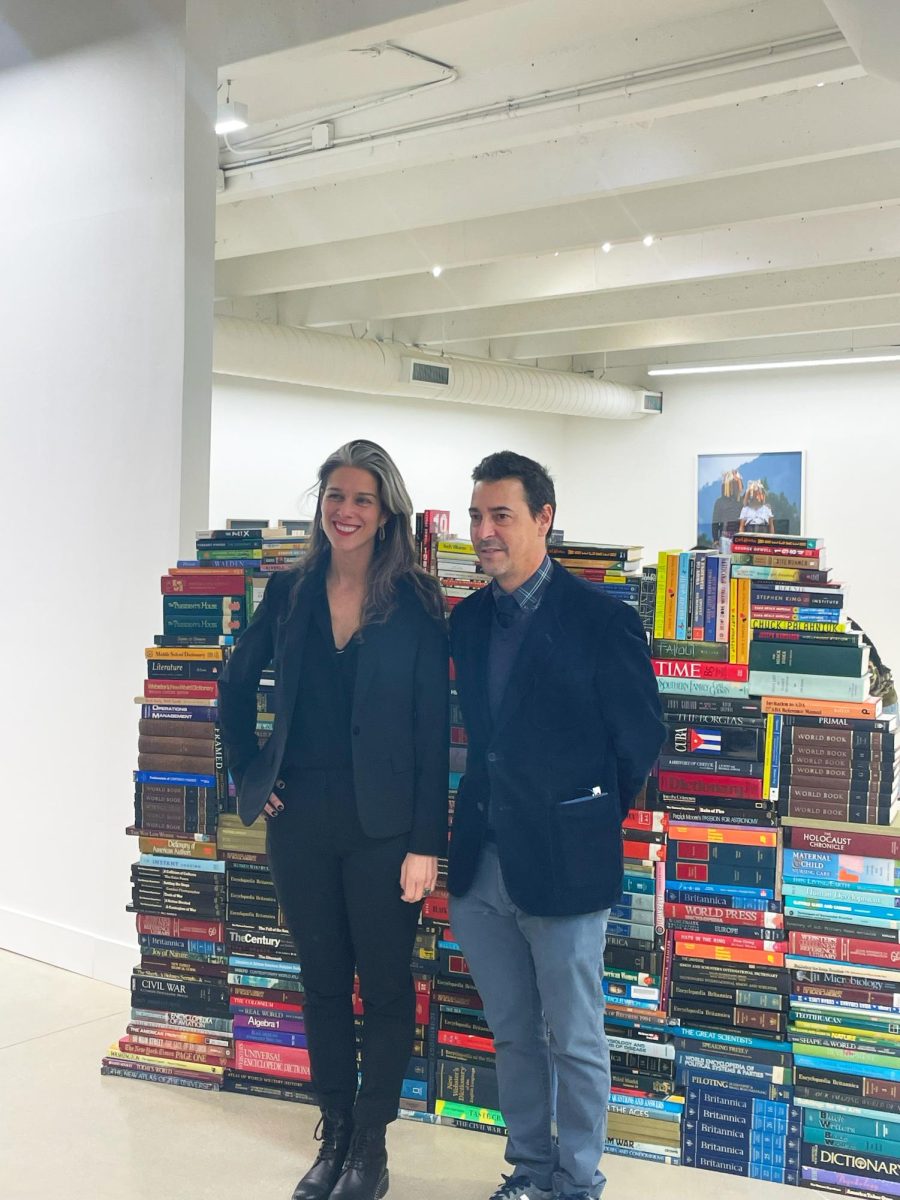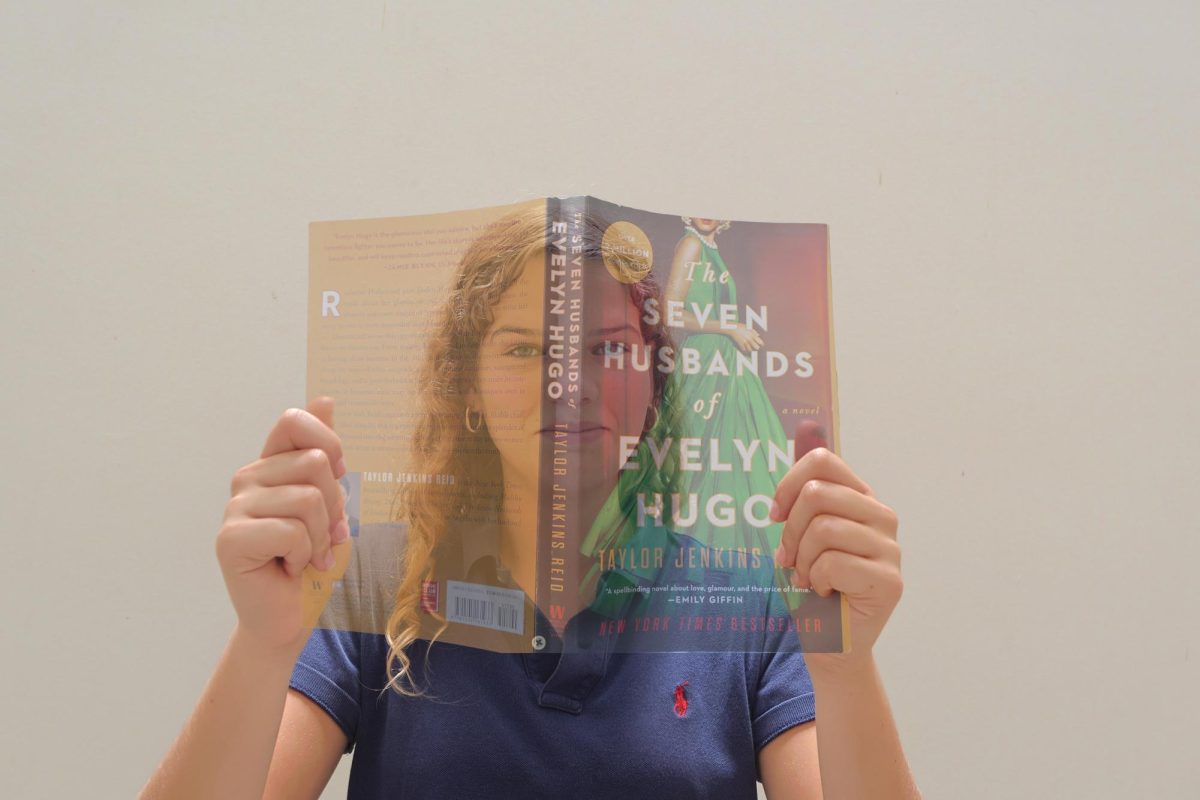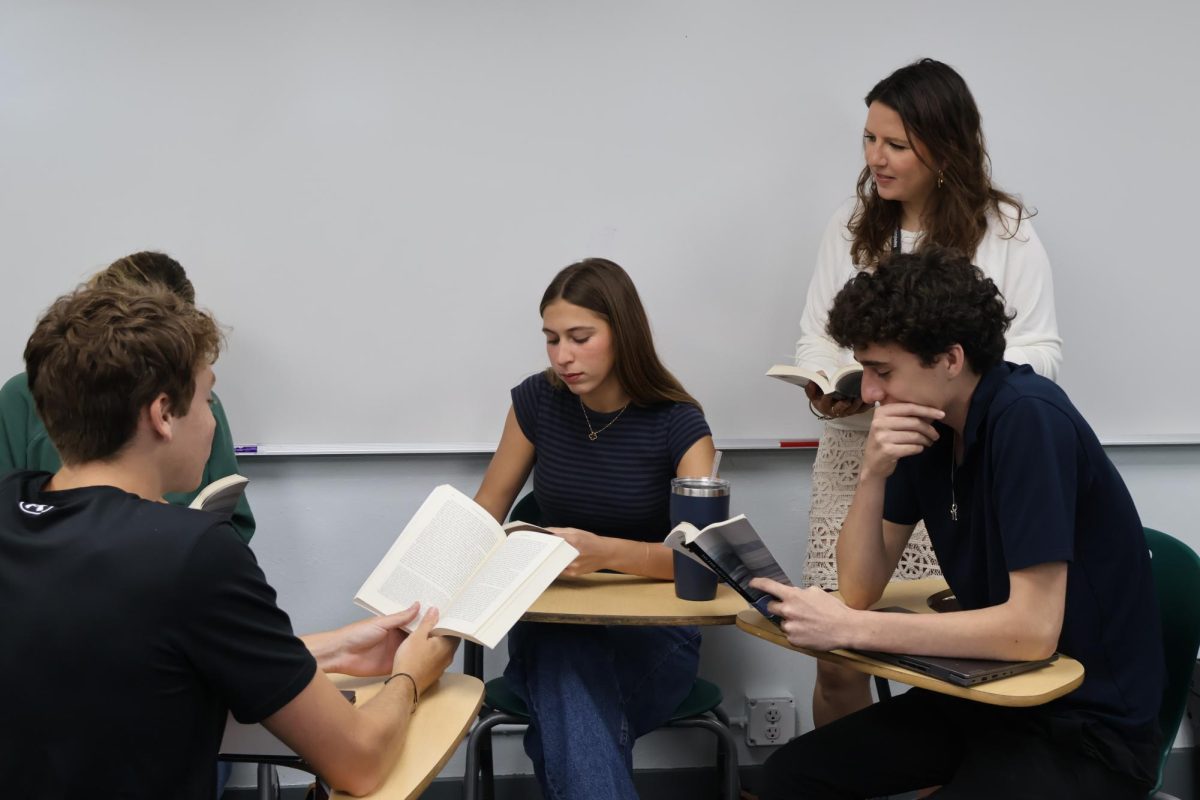With the rise of book bans in Florida, with over 4,500 book titles having been banned in Florida since 2024, Ransom Everglades alumni Ruben Millares ’98 and Antonia Wright have turned to performance art to convey an urgent message: stop the bans and educate the youth on the importance of protecting access to crucial literature.
Their art installation features a wall constructed from over 2,000 books, with banned titles placed prominently at the top and supported by dictionaries and encyclopedias at the base. The structure is as symbolic as it is literal, illustrating the foundational role of knowledge in challenging censorship.
“It all started in 2010, when they were cutting funding for the arts across the country,” Millares recalls. “We were interested in these social issues…so we decided, why don’t we just throw our bodies through these books? Let’s make a video out of this and make a commentary that playfully speaks about this kind of defunding of arts and education in America.”
The duo performed this piece 15 times across the country, often with the help of libraries on the brink of closure. However, the project’s resonance has evolved over the years, taking on new significance amidst the current wave of book bans.
The spark for their latest performance came from a troubling local example. “I read that they banned Amanda Gorman in Miami-Dade…a presidentially approved poet, junior poet laureate for the country, and I was outraged at this idea,” Wright explains. Her outrage led her to investigate the mechanics of book bans and discovered just how precariously they hinge on individual complaints.
“All it took was one parent to write a letter to that school saying they didn’t want their child to read this poem.”
Suddenly, their 2010 performance felt more relevant than ever, albeit in a new context. Instead of using books from closing libraries, their installation now features banned books from Florida. High school students—the demographic most directly impacted by these bans— help construct, then subsequently run through the wall, literally breaking through censorship.
Millares reflected on his formative years, emphasizing the role of his alma mater in fostering his artistic consciousness. “Ransom provided me more art awareness, through teachers like Ellen Grant and Astrid Dalins,” he noted, highlighting the importance of early exposure to creative expression.
The artists hope their performance ignites dialogue and awareness. “We want people to be engaged in conversation,” Wright shared. “Even if students don’t realize how many books are banned, it’s a way to talk about it and engage.”
For Wright and Millares, even the smallest ripple can create waves. “Maybe it opens up something in someone…and they go and fight back, donate, or start reading banned books for themselves and their family,” Wright said.
Through their art, Millares and Wright shine a spotlight on the insidiousness of censorship and the vital role of resistance. Their message is clear: knowledge must remain accessible, and the fight for intellectual freedom is one worth continuing.








